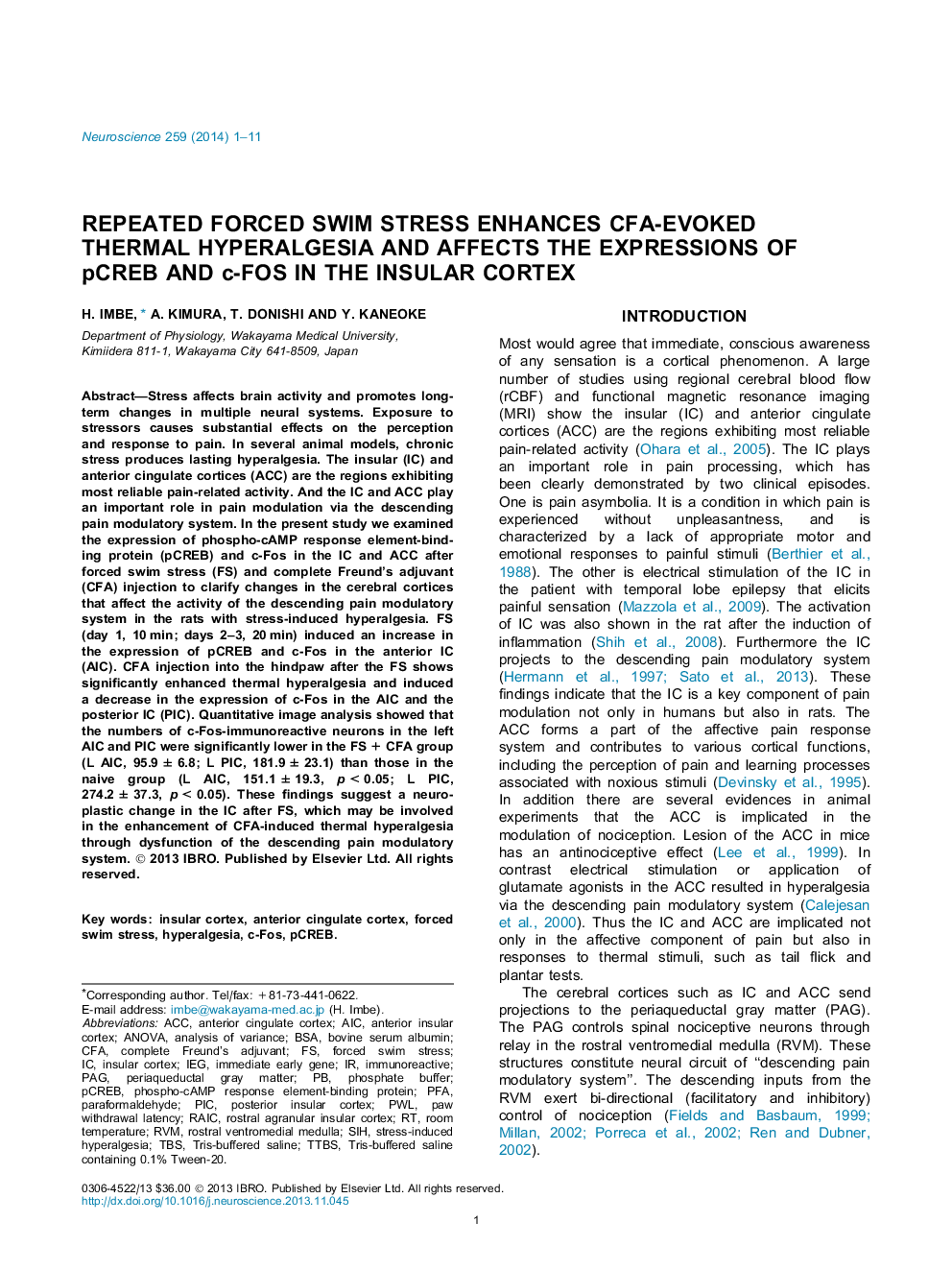| Article ID | Journal | Published Year | Pages | File Type |
|---|---|---|---|---|
| 4337862 | Neuroscience | 2014 | 11 Pages |
•Forced swim stress increased the expressions of pCREB and c-Fos in the IC.•CFA injection after forced swim stress significantly enhanced thermal hyperalgesia.•CFA injection after forced swim stress decreased the expression of c-Fos in the IC.•These findings suggest a neuroplastic change in the IC after forced swim stress.
Stress affects brain activity and promotes long-term changes in multiple neural systems. Exposure to stressors causes substantial effects on the perception and response to pain. In several animal models, chronic stress produces lasting hyperalgesia. The insular (IC) and anterior cingulate cortices (ACC) are the regions exhibiting most reliable pain-related activity. And the IC and ACC play an important role in pain modulation via the descending pain modulatory system. In the present study we examined the expression of phospho-cAMP response element-binding protein (pCREB) and c-Fos in the IC and ACC after forced swim stress (FS) and complete Freund’s adjuvant (CFA) injection to clarify changes in the cerebral cortices that affect the activity of the descending pain modulatory system in the rats with stress-induced hyperalgesia. FS (day 1, 10 min; days 2–3, 20 min) induced an increase in the expression of pCREB and c-Fos in the anterior IC (AIC). CFA injection into the hindpaw after the FS shows significantly enhanced thermal hyperalgesia and induced a decrease in the expression of c-Fos in the AIC and the posterior IC (PIC). Quantitative image analysis showed that the numbers of c-Fos-immunoreactive neurons in the left AIC and PIC were significantly lower in the FS + CFA group (L AIC, 95.9 ± 6.8; L PIC, 181.9 ± 23.1) than those in the naive group (L AIC, 151.1 ± 19.3, p < 0.05; L PIC, 274.2 ± 37.3, p < 0.05). These findings suggest a neuroplastic change in the IC after FS, which may be involved in the enhancement of CFA-induced thermal hyperalgesia through dysfunction of the descending pain modulatory system.
